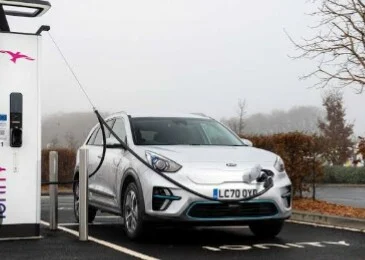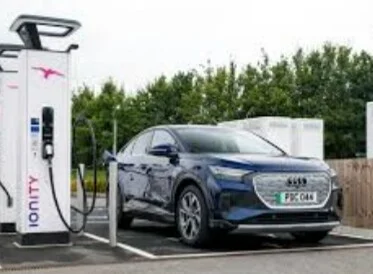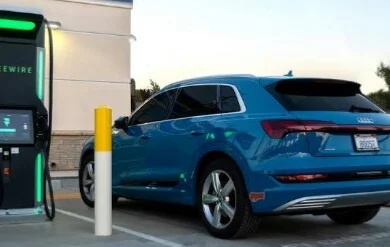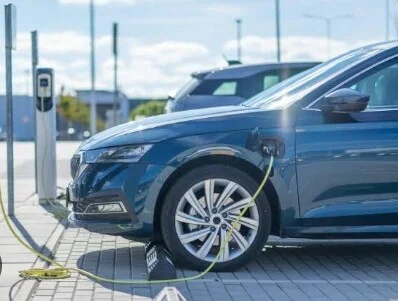Electric Vehicle Technology
The field of electric vehicles (EVs) is continuously evolving, and several latest technologies have emerged to enhance their performance, range, charging capabilities, and overall efficiency.
Latest Advancements in Electric Vehicle Technology
| Feature | Advancements |
|---|---|
| Battery Technology | Solid-state batteries, silicon anode batteries, and improved battery management systems. |
| Charging Technology | Wireless charging, faster charging speeds, and bidirectional charging (vehicle-to-grid). |
| Aerodynamics | Improved aerodynamic designs to reduce drag and increase range. |
| Autonomous Driving | Advanced driver-assistance systems (ADAS) and autonomous driving capabilities. |
| Lightweight Materials | Use of lightweight materials like carbon fiber and aluminum to improve efficiency. |
| Range Anxiety Solutions | Improved range estimation, real-time route optimization, and expanded charging infrastructure. |
| Sustainable Materials | Use of sustainable materials and recycling initiatives to reduce environmental impact. |
| Integration with Smart Grid | Vehicle-to-grid (V2G) technology for energy storage and grid stabilization. |
| Over-the-Air Updates | Software updates and feature upgrades delivered wirelessly. |
| Personalized Driving Experiences | Adaptive settings and personalized preferences based on driver behavior. |
Latest advancements in electric vehicle technology
Here are some of the latest advancements in electric vehicle technology:
1. Increased Range: Electric vehicles now offer significantly increased driving ranges compared to earlier models. Advances in battery technology, such as higher energy density and improved chemistry, have enabled EVs to achieve ranges of over 300 miles (480 kilometers) on a single charge.
2. Fast Charging: Rapid advancements in fast-charging technology have reduced charging times for electric vehicles. High-power charging stations, like Tesla's Supercharger network and other fast-charging networks, can provide a substantial amount of charge in a short period, enabling longer trips and reducing charging downtime.
3. Solid-State Batteries: Solid-state batteries are being developed as the next generation of energy storage for electric vehicles. These batteries use solid electrolytes instead of liquid or gel electrolytes found in conventional lithium-ion batteries. Solid-state batteries offer several advantages, including higher energy density, faster charging times, enhanced safety, and longer lifespan.
4. Wireless Charging: Wireless charging, also known as inductive charging, eliminates the need for physical cables and plugs. This technology allows electric vehicles to charge by parking over a wireless charging pad or driving on electrified roads that wirelessly transfer energy to the vehicle while in motion.
5. Vehicle-to-Grid (V2G) Technology: V2G technology enables electric vehicles to not only draw power from the grid but also return excess energy back to it. This bidirectional energy flow allows EVs to serve as mobile energy storage units, contributing to grid stabilization and supporting renewable energy integration.
6. Regenerative Braking: Regenerative braking systems capture and store kinetic energy generated during braking and deceleration. This energy is then used to recharge the EV's battery, improving overall energy efficiency and extending the vehicle's range.
7. Advanced Driver-Assistance Systems (ADAS): Many electric vehicles now come equipped with advanced driver-assistance systems, including features like adaptive cruise control, lane-keeping assist, and autonomous emergency braking. These systems enhance safety, provide a smoother driving experience, and pave the way for future autonomous driving capabilities.
8. Vehicle-to-Vehicle (V2V) Communication: V2V technology enables vehicles to communicate with each other, exchanging information about their speed, position, and intentions. This communication facilitates safer driving, reduces accidents, and optimizes traffic flow.
9. Lightweight Materials: Automakers are increasingly using lightweight materials such as carbon fiber reinforced polymer (CFRP), aluminum, and high-strength steel alloys to reduce the weight of electric vehicles. Lighter vehicles require less energy to move and offer improved efficiency and range.
10. Augmented Reality (AR) Interfaces: Some electric vehicles now feature augmented reality interfaces that overlay real-time information onto the driver's view. These systems can provide navigation guidance, safety alerts, and other relevant information directly on the windshield, enhancing the driving experience and reducing distraction.
These are just a few examples of the latest technologies in electric vehicles. As the industry continues to grow, we can expect further advancements in areas like battery technology, charging infrastructure, connectivity, and autonomous driving, which will shape the future of electric mobility.
List of Advancements Company in electric vehicle
Here is the list of advancements in electric vehicle technology and the companies leading the way:
1. Tesla, Inc.: Tesla is a prominent pioneer in electric vehicle technology, known for producing high-performance electric cars with long ranges and cutting-edge features.
2. Nissan Motor Corporation: Nissan is a major player in the EV market, particularly known for its Nissan LEAF, one of the world's best-selling electric cars.
3. BYD Auto Co., Ltd.: A Chinese company, BYD is a significant player in the electric vehicle market, manufacturing a wide range of electric vehicles, including cars, buses, trucks, and monorails.
4. BMW AG: BMW has been actively involved in electric vehicle technology, offering electric models like the BMW i3 and i8, as part of their EV initiative.
5. General Motors Company: General Motors (GM) has been investing heavily in electric vehicle technology, launching the Chevrolet Bolt EV and planning to expand its EV lineup.
6. Volkswagen Group: Volkswagen is undergoing a major transformation towards electrification with its "Roadmap E" strategy, introducing electric models like the ID.3 and ID.4.
7. Rivian: Rivian is an American electric vehicle startup known for its electric pickup truck, the R1T, and electric SUV, the R1S, with impressive off-road capabilities.
8. Lucid Motors: Lucid Motors focuses on luxury electric vehicles, offering the Lucid Air with impressive performance and advanced technology.
9. Polestar: Polestar is Volvo Car Group's electric vehicle brand, producing high-performance electric cars like the Polestar 1 and Polestar 2.
10. Hyundai Motor Group: Hyundai and Kia, part of the Hyundai Motor Group, have been expanding their electric vehicle lineup, with models like the Hyundai Kona Electric and Kia Niro EV.
11. Xpeng Motors: Xpeng is a Chinese electric vehicle manufacturer producing smart, connected electric cars with a focus on advanced autonomous driving capabilities.
12. Toyota Motor Corporation: While historically known for hybrid technology, Toyota has been exploring and investing in electric vehicle technology, introducing electric models like the Toyota bZ4X.
Here is a list of some of the electric vehicles produced by the companies mentioned earlier:
1. Tesla, Inc.:
- Tesla Model S
- Tesla Model 3
- Tesla Model X
- Tesla Model Y
2. Nissan Motor Corporation:
- Nissan LEAF
3. BYD Auto Co., Ltd.:
- BYD e6
- BYD Tang (Electric version)
- BYD Han EV
- BYD Qin EV
4. BMW AG:
- BMW i3
- BMW i8 (Plug-in hybrid)
- BMW iX3
- BMW i4
- BMW iX
5. General Motors Company:
- Chevrolet Bolt EV
6. Volkswagen Group:
- Volkswagen ID.3
- Volkswagen ID.4
- Audi e-tron series
- Porsche Taycan
7. Rivian:
- Rivian R1T (Electric pickup truck)
- Rivian R1S (Electric SUV)
8. Lucid Motors:
- Lucid Air
9. Polestar:
- Polestar 1 (Plug-in hybrid)
- Polestar 2
10. Hyundai Motor Group:
- Hyundai Kona Electric
- Hyundai Ioniq Electric
- Kia Soul EV
- Kia Niro EV
11. Xpeng Motors:
- Xpeng G3
- Xpeng P7
12. Toyota
- Toyota bZ4X
- Toyota Prius Prime (Plug-in hybrid)
Top Country With Highest Electric Vehicle Technology
The following countries were among the top leaders in electric vehicle (EV) technology adoption and development:
1. Norway: As previously mentioned, Norway has been a global leader in electric vehicle adoption and technology. The country's robust charging infrastructure, government incentives, and strong public support have contributed to a significant market share of electric vehicles in Norway.
2. China: China is the largest electric vehicle market in the world and a major player in EV technology development. The Chinese government has implemented ambitious policies to promote electric vehicle adoption, resulting in a surge of electric car sales and significant advancements in battery technology and manufacturing.
3. Netherlands: The Netherlands has shown remarkable progress in electric vehicle technology and infrastructure. The country has a dense network of charging stations and offers various incentives to encourage EV adoption, making it a popular choice for electric vehicles in Europe.
4. Sweden: Sweden has been at the forefront of sustainable technology and is home to some leading electric vehicle manufacturers and suppliers. The country's strong commitment to renewable energy and green initiatives has driven the development and adoption of electric vehicles.
It is essential to note that the electric vehicle landscape is dynamic and continually evolving. Other countries, such as Germany, South Korea, and the United States, have also been making significant strides in electric vehicle technology, and new developments may have occurred.
4 Top Model of Electric Vehicle with Highest Technology
Here is a list of some of the top models of electric vehicles known for their advanced technology and features:
1. Tesla Model S: The Tesla Model S is a flagship electric car known for its cutting-edge technology, high-performance capabilities, and long driving range. It features Tesla's Autopilot system for advanced driver-assistance and over-the-air software updates to continuously improve functionality.
2. Porsche Taycan: The Porsche Taycan is a luxury electric sports sedan that offers impressive performance and handling. It comes with advanced features like high-speed charging, adaptive cruise control, and a digital cockpit with various interactive displays.
3. Audi e-tron GT: Audi's e-tron GT is another high-performance electric car with a luxurious interior and advanced technology. It includes Audi's Virtual Cockpit, advanced driver-assistance systems, and fast-charging capabilities.
4. Lucid Air: The Lucid Air is a luxury electric sedan that showcases cutting-edge technology and engineering. It features a high-resolution curved display, advanced driver-assistance features, and a spacious interior design.
4 Best Seller Elecrric Vehicle
Here is a list of some of the best-selling electric vehicles (EVs)
1. Tesla Model 3: The Tesla Model 3 has been one of the best-selling electric cars globally, offering a combination of long-range, high performance, and advanced features at a relatively affordable price point.
2. Nissan LEAF: The Nissan LEAF is a widely recognized and popular electric car, being one of the earliest mass-market EVs and consistently among the top-selling electric vehicles.
3. BYD Qin EV: The BYD Qin EV, manufactured by Chinese automaker BYD Auto Co., Ltd., has gained popularity in the Chinese market as one of the best-selling electric cars.
4. Renault ZOE: The Renault ZOE has been a popular electric car in Europe, especially in countries with supportive electric vehicle incentives and charging infrastructure.
Conclusion Technology of electric vehicle
The latest technology in electric vehicles showcases a remarkable evolution in the automotive industry.
Advances in battery technology have been instrumental in extending driving ranges, reducing charging times, and enhancing the overall performance of electric cars.
Moreover, the development of dedicated electric vehicle platforms, lightweight materials, and aerodynamic designs has further optimized efficiency and range. Companies have also made significant strides in autonomous driving features, creating a path towards a safer and more convenient driving experience for consumers.
The demand for sustainable transportation continues to grow, the continuous research and development efforts in the electric vehicle sector promise an exciting future. The ongoing focus on environmental sustainability, coupled with increasing affordability and charging infrastructure expansion, is making electric vehicles an increasingly attractive option for a broader audience.
With technological advancements showing no signs of slowing down, it is likely that electric vehicles will play a vital role in shaping the future of transportation, contributing to reduced emissions and a more sustainable, greener world.




